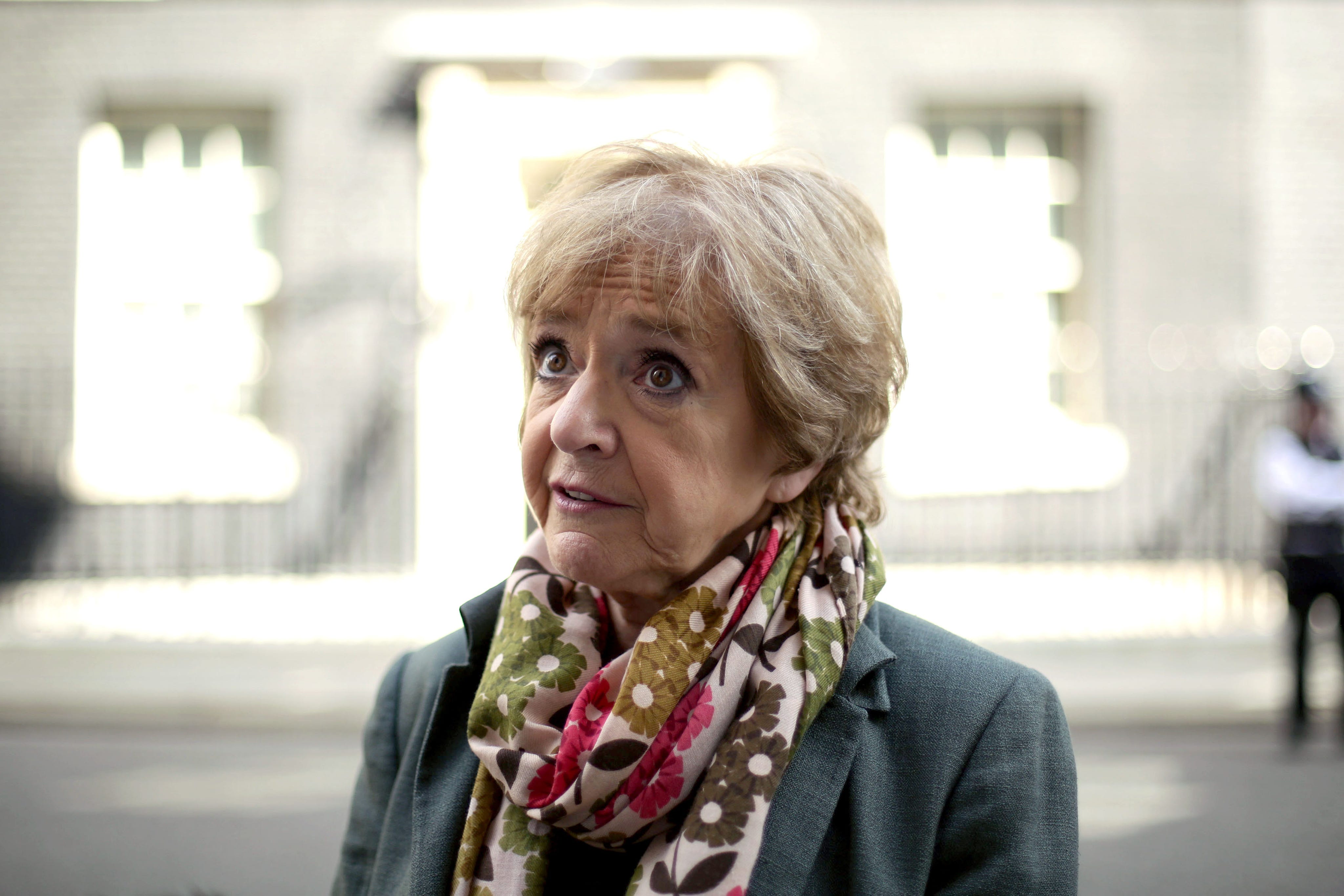MP: Asylum seekers face similar hostile environment to 1940s Jewish refugees
Labour MP Dame Margaret Hodge raised concerns as she led the annual Holocaust Memorial Day debate.

Asylum seekers in the UK face a “similar hostile environment” to Jewish refugees arriving in the 1940s, MPs have heard.
Labour former minister Dame Margaret Hodge recalled her family’s experiences during the Second World War and in the years before relating it to what asylum seekers encounter today.
Dame Margaret, 79, warned “language we use today matters” as she criticised those who say asylum seekers are “invading” Britain and pose an “existential threat” to the West.
We as a nation should understand that how we treat those who escape from persecution and genocide is central to our reputation as a country that boasts a humanitarian approach to genocide and the Holocaust
Her comments came as she led the annual Holocaust Memorial Day debate in the Commons, which this year was focused on the “fragility of freedom”.
Speaking in the Commons, Dame Margaret said she lost close relatives in the Holocaust but others were able to escape just days before the start of the Second World War.
Her grandfather arrived in England in March 1939 and said his diary described how he was “living like a recluse” as he struggled due to a lack of language skills.
The MP for Barking: “He talks about antisemitism in Britain and how it reached up into the government when the only Jew in the cabinet was sacked by Neville Chamberlain.
“On his arrival to Britain my refugee Jewish grandfather was classified an ‘enemy alien’ though that was later changed to being a ‘friendly’ but still an ‘alien’.”
In June 1940, Dame Margaret’s grandfather was “arrested, removed from his home and interned”.
The MP said he was taken to Liverpool, given a number and housed in “overcrowded conditions, with a rubber sheet, straw and blankets”.
Dame Margaret said she arrived in the UK in 1949 through Egypt and was “interrogated” by a Home Office inspector as she went through the process of applying for British citizenship.
She said: “Dealing with a hostile, not a friendly, environment remains forever locked in my memory.
“And what do all these stories tell us? My family knows, and indeed the families of millions of refugees know, that freedom is never a guarantee.
“We as a nation should understand that how we treat those who escape from persecution and genocide is central to our reputation as a country that boasts a humanitarian approach to genocide and the Holocaust.”
We should reflect on what we say and what we do today before we exercise any moral entitlement to condemn the atrocities of the past. The language we use today matters
Dame Margaret added: “We’re not as good as we proclaim to be.
“My grandfather didn’t feel welcome, I didn’t feel wanted as a nine-year-old girl and the asylum seekers who try to come here today face a similar hostile environment.
“Told by leading Government politicians that they pose an ‘existential threat’ to the West’s way of life, that they are part of a ‘hurricane’ of mass migration, that MPs feel ‘besieged by asylum seekers’, and that asylum seekers are ‘invading’ Britain.
“We should reflect on what we say and what we do today before we exercise any moral entitlement to condemn the atrocities of the past.
“The language we use today matters.”
Dame Margaret earlier said she had just returned from Israel where she went to support people affected by the October 7 attacks by Hamas.
She said: “Israel is experiencing a national trauma and a real fear of existential survival with the memories of the Holocaust at the heart of their minds.
“And the same is true in Gaza, with innocent civilians experiencing similar national trauma, an identical fear of existential survival, a comparable terror of genocide as they live with bombardment, death, injury, displacement and a lack of humanitarian aid.
“So we meet at a deeply depressing time to reflect on the Holocaust with many thinking: ‘When will the world ever, ever really learn from our past?’ But the truth is we must keep trying.”
Conservative former minister Sir Paul Beresford said attacks on Jewish people after October 7 have “hints of the early days of the Nazis in Germany”.
Communities minister Simon Hoare said: “When we think it’s history, when we think it either isn’t happen(ing) or can’t happen again, we’ve lost the battle haven’t we.
“Because what was the Holocaust, and why should we remember it? We can remember it for the horror, and the statistics, and the figures, and the scale.
“But the eternal shame, to use (Tory MP Bob Stewart’s) phrase, was man’s inhumanity to man, and we should all be ashamed and embarrassed by it.”
Mr Hoare said MPs were right to remind the House of the UK’s “uncomfortable truth”, adding: “The welcoming of Jewish children through the Kindertransport, but not their parents, and the controls that we placed with regards to Jewish migration, and the problems that that caused for too many people.”
Concluding, Mr Hoare said: “Let us unite today and always to mark and reflect all of those who have lost their lives to both the Holocaust and all holocausts, may all of their sacrifices not have been in vain, may all of their memories be a blessing.”
Bookmark popover
Removed from bookmarks